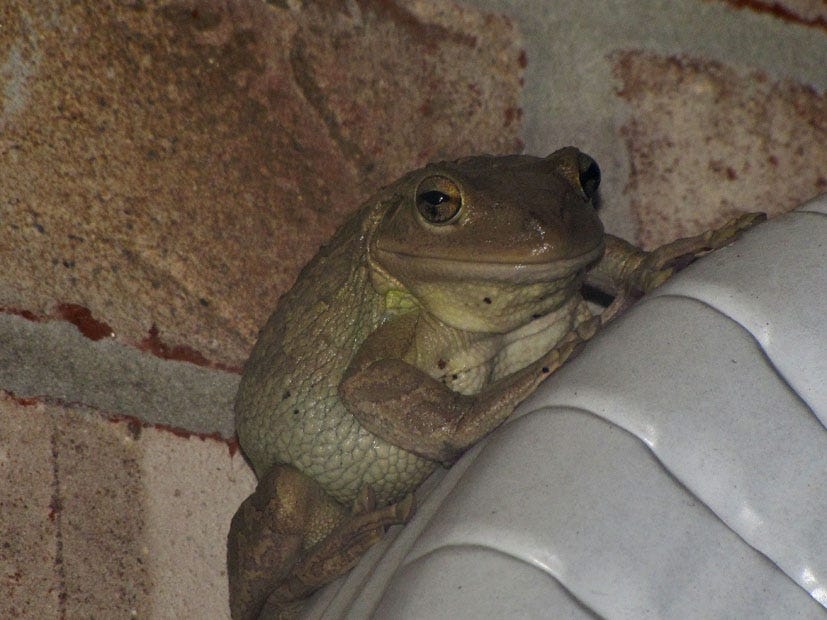
Recently, we had to confirm the presence of the exotic Cuban treefrog in Crestview. While there have been random sightings in the south end of the county over the past few years, this was a first for North Okaloosa.
This treefrog “on steroids” feeds on our smaller treefrogs and is toxic to other animals that may prey on it. As a juvenile, they have red eyes and their hind legs show blue bones through the skin. But their body can grow to over 5 inches and their toe pads are twice the size of our native treefrogs. For more information, go to http://ufwildlife.ifas.ufl.edu/cuban_treefrog_inFL.shtml.
Every year more than 85 million people visit Florida. However, people are not Florida's only visitors; Florida is also an inviting destination for invasive species that threaten to undermine the health of our environment.
More than an inconvenience, invasive plants and animals can greatly alter our native landscape, adversely impact native wildlife, destroy agricultural crops and threaten our health. Invasions of exotic species cost Floridians over $500 million each year.
The economic costs are small compared to the ecological ones.
Florida has millions of acres of public lands; these lands furnish the water we drink, the air we breathe and countless recreational opportunities. These public lands are highly vulnerable to invasion by exotic plant and animal species; it is estimated that more than 1.7 million acres of Florida's natural areas have been infested by invasive species.
By reporting sightings of invasive animals and plants, we can better assess the extent of the infestations and hopefully eradicate new infestations before they become huge problems. The goal of IveGot1 is to make identification and reporting easy and efficient as possible.
IveGot1 was developed by the University of Georgia Center for Invasive Species and Ecosystem Health through a cooperative agreement with the National Park Service, in cooperation with the Florida Fish and Wildlife Conservation Commission and the University of Florida Center for Aquatic and Invasive Plants.
IveGot1 is more than just an iPhone app; it is an integrated invasive species reporting and outreach campaign for Florida that includes the app, a website with direct access to invasive species reporting and a hotline, 1-888-IVEGOT1, for instant reports of live animals. Easy species reporting captures your current location and allows you to submit an image of your sightings.
Join the Florida Exotic Pest Plant Council or your local Cooperative Invasive Species Management Area (CISMA) through the Florida Invasive Species Partnership and help monitor the movement of invasive species. For more information on the IveGot1 program, see
For more information on the IveGot1 program, see http://www.eddmaps.org/florida/iphone/.
This article originally appeared on Crestview News Bulletin: Report invasive species — like this treefrog
